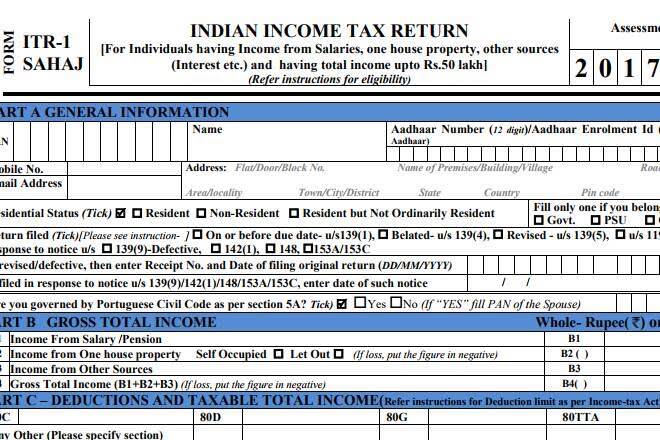 Electronic filing or e-filing or income tax returns have become a more preferable way to make annual tax payments these days. An e-filing can be made through the IRS website as it reduces the chances of errors and makes getting refunds easier as well. Here are a few basic do’s and don’ts that will help you file your ITR easily.
Electronic filing or e-filing or income tax returns have become a more preferable way to make annual tax payments these days. An e-filing can be made through the IRS website as it reduces the chances of errors and makes getting refunds easier as well. Here are a few basic do’s and don’ts that will help you file your ITR easily.
Do’s:
1. Find an authorized e-file provider in your area
Most local libraries and the IRS website have the necessary forms and publications that you need to file your ITR. You can also locate an authorized e-file provider in your area to learn more.
2. Know the federal individual income tax return due date for the year
The Publication 509 Tax Calendar issued by the IRS lets individuals know what kinds of deadlines have been set for a particular year. You can also check the ITR deadline through the IRS website.
3. Know when to file an extension
If you haven’t been able to file your ITR by the given date, you may need to an extension. You may need to check whether you are entitled to an extension or not and how much time that would buy you. You need to check the procedure for filing an extension for your ITR by logging onto the state or federal revenue department’s website or simply consult an accountant for more information.
4. Check your refund status
Sometimes we pay more tax then we are required to pay. In such a case, you would be entitled to a tax refund from the government. If you are expecting a refund, you can try logging onto a refund tracking website. Usually, you would be able to check the status of your tax refund roughly seventy two hours after your e-filing.
Don’ts:
1. be hesitant about getting free tax help
Getting free tax help isn’t something you should try to avoid. The IRS recruits trained tax counselors and volunteers that help people that cannot file their ITR on their own. Of course you might need to find out whether you really qualify for tax counseling for your ITR before applying for free help with your taxes. You can visit the IRS website and download the PDF file on how you can avail of free tax services provided by the internal and state revenue departments.
2. Forget to pay local and state taxes
Apart from the federal taxes that you have pay, there are also a number of local and state taxes that one is subjected to. More often than not, these taxes vary from state to state and from community to community. Usually, you should be able to find details about what kind of taxes you need to pay, how much tax you need to pay and what kinds of ITRs you aren’t required to pay on the state revenue service’s website or office though it might be a better idea to consult an accountant if you have just relocated to another state or find the filing requirements too overwhelming and difficult to understand.
3. Ignore filing requirements
A lot of people that have been filing ITRs often get so used to doing them that they often fail to read through new requirements that may have been introduced for a particular financial year. These are especially true for local and state taxes. Before filing your income tax return, you should educate yourself as much as you can about the deadlines, forms, options and filing requirements before you begin the process of filing your ITR. It will save you a lot of time and heartache indeed.
4. Forget to check if you are required to file ITR or not
A lot of people that fall below the filing requirement for ITR also file these taxes. If you are in the lower income group or simply don’t know if you’re eligible to file an ITR or not, you should try to check out the requirements set by the IRS through their website or the literature that can be found at local libraries.
About The Author:
Lina is a writer blogger. She loves writing, travelling and reading books. She contributes to punchh.com

